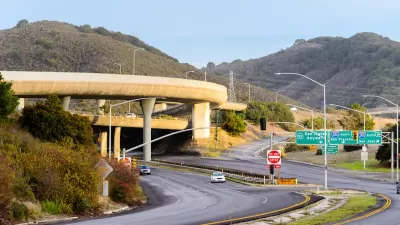Rental car companies and cities say companies like Turo and Getaround are not following the regulatory rules that should apply to them.

Laura Bliss writes that peer-to-peer carsharing companies are facing pushback from rental car companies and cities. Turo and Getaround are two companies that allow vehicle owners to rent cars directly to other users, and technological developments in recent years have greatly facilitated these transactions. "Cars could be made available in more remote and rural settings, with a range of luxury or special-interest models that might not make sense for traditional car rental companies like Hertz or Avis to rent out themselves," notes Bliss.
Critics argue these companies, and people who use the services to run small-scale car rental operations, are not paying the taxes and fees that states and local municipalities get from traditional rental car companies. Cities are taking legal action, and San Francisco, for example, is suing Turo for ignoring airport fees and regulations, says Bliss:
But Turo’s representatives insist that, much as Uber and Lyft hold that they are not taxi companies (or even transportation companies), they’re not a rental car company. They’re just a "platform," according to Michelle Peacock, Turo’s vice president of government relations. "It’s a different way of doing business."
Bliss adds that the traditional rental car industry continues to thrive even with the growth of carsharing competitors. And the future of peer-to-peer carsharing is very much up in the air, with the regulatory uncertainties hanging over it and new technologies, such as autonomous vehicles, on the horizon.
FULL STORY: The ‘Airbnb of Cars’ Gets Heat From the Rental Car Industry

Alabama: Trump Terminates Settlements for Black Communities Harmed By Raw Sewage
Trump deemed the landmark civil rights agreement “illegal DEI and environmental justice policy.”

Study: Maui’s Plan to Convert Vacation Rentals to Long-Term Housing Could Cause Nearly $1 Billion Economic Loss
The plan would reduce visitor accommodation by 25% resulting in 1,900 jobs lost.

Why Should We Subsidize Public Transportation?
Many public transit agencies face financial stress due to rising costs, declining fare revenue, and declining subsidies. Transit advocates must provide a strong business case for increasing public transit funding.

Paris Bike Boom Leads to Steep Drop in Air Pollution
The French city’s air quality has improved dramatically in the past 20 years, coinciding with a growth in cycling.

Why Housing Costs More to Build in California Than in Texas
Hard costs like labor and materials combined with ‘soft’ costs such as permitting make building in the San Francisco Bay Area almost three times as costly as in Texas cities.

San Diego County Sees a Rise in Urban Coyotes
San Diego County experiences a rise in urban coyotes, as sightings become prevalent throughout its urban neighbourhoods and surrounding areas.
Urban Design for Planners 1: Software Tools
This six-course series explores essential urban design concepts using open source software and equips planners with the tools they need to participate fully in the urban design process.
Planning for Universal Design
Learn the tools for implementing Universal Design in planning regulations.
Smith Gee Studio
Alamo Area Metropolitan Planning Organization
City of Santa Clarita
Institute for Housing and Urban Development Studies (IHS)
City of Grandview
Harvard GSD Executive Education
Toledo-Lucas County Plan Commissions
Salt Lake City
NYU Wagner Graduate School of Public Service





























